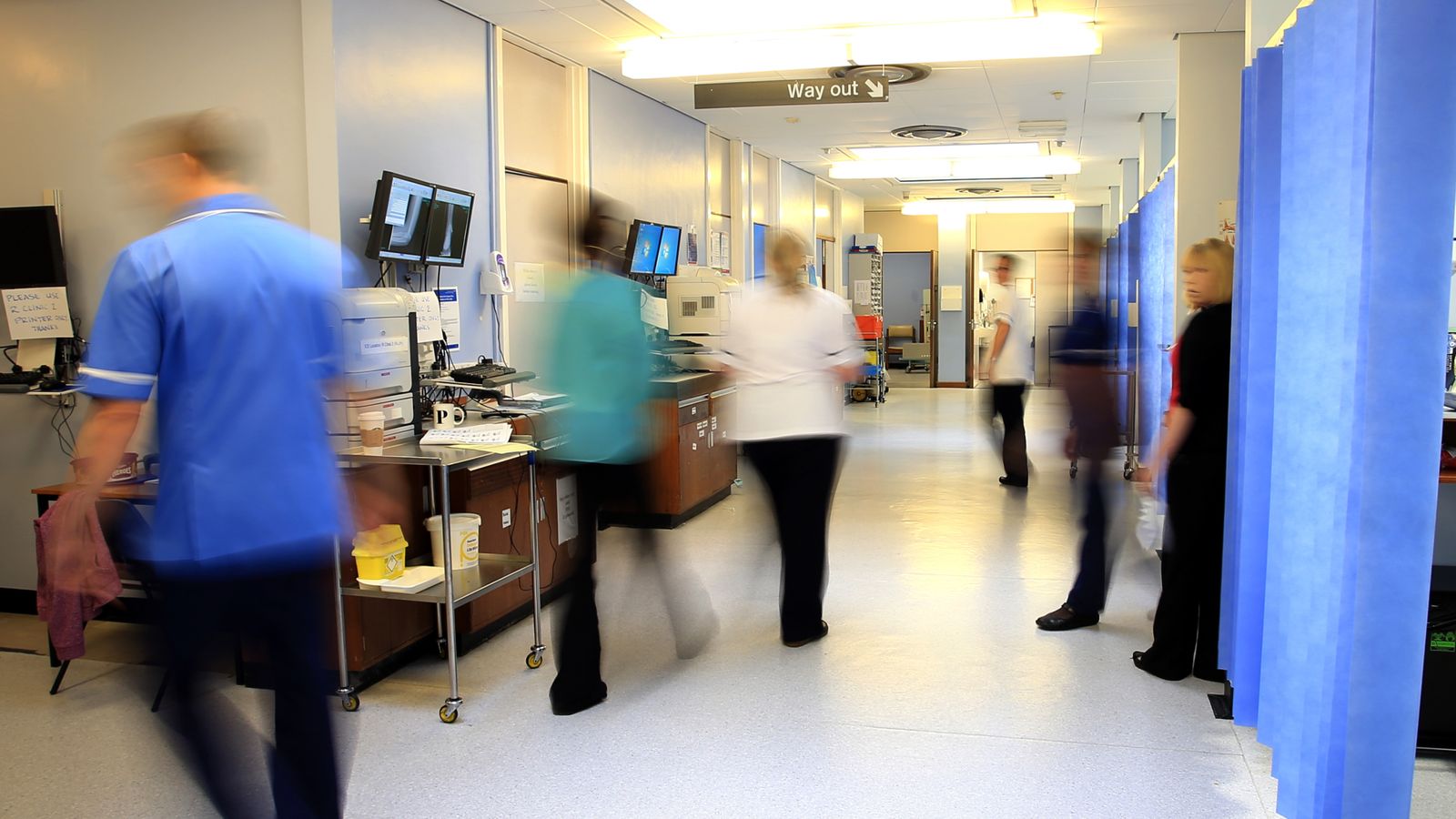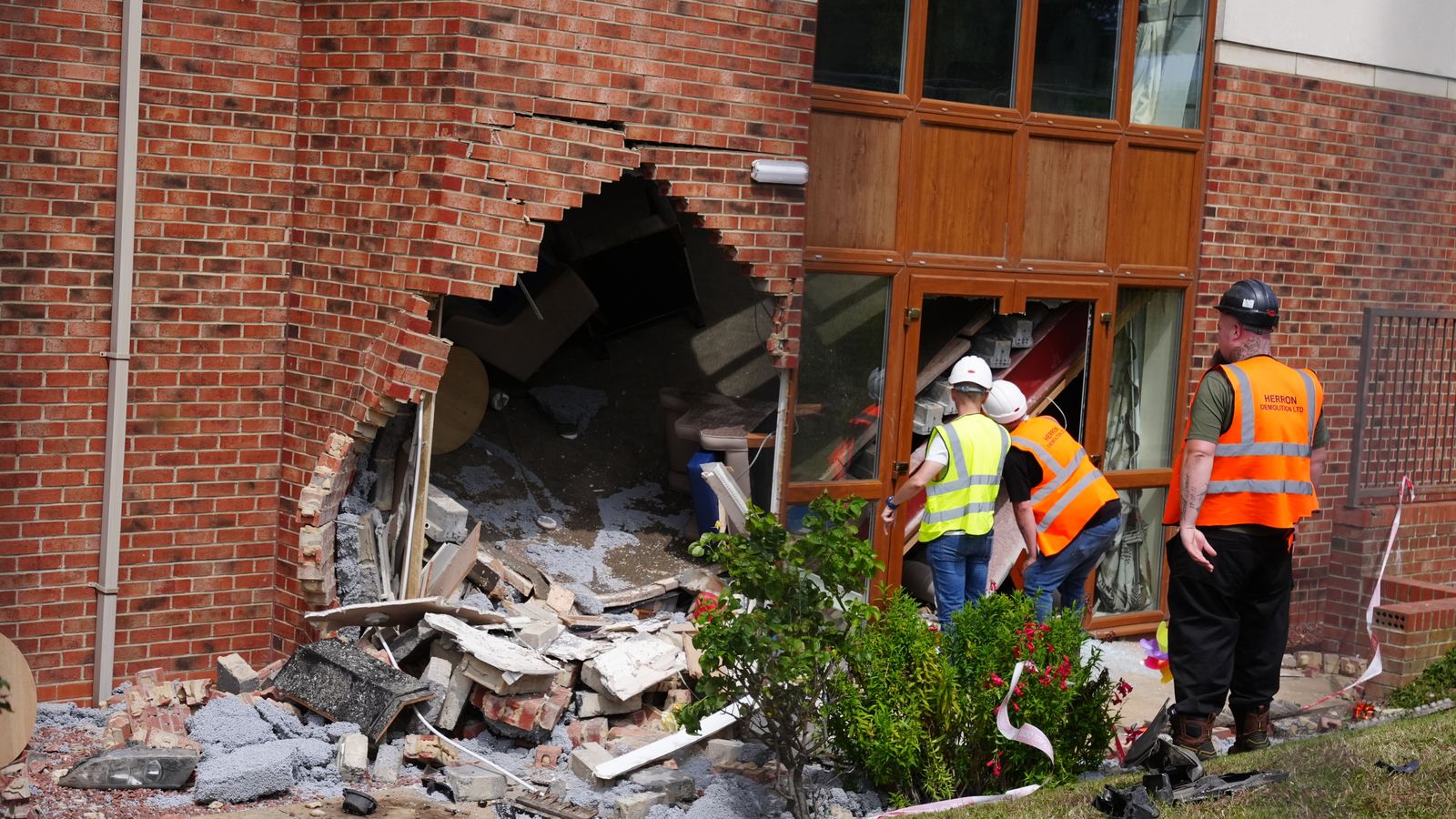Ten times more people are in hospital with flu than this time last year, latest figures show.
There were an average of 344 patients a day with flu in hospital last week, compared with the 31 seen at the beginning of December last year, according to data released by NHS England.
It comes amid pressures on staffing too, with new figures showing nearly 360,000 NHS staff were absent from work last week through illness or self-isolating due to COVID.
Around 19 in 20 general and acute beds were taken up – 80% for adult critical care, NHS England’s first weekly winter update also showed.
More than 13,000 (13,179) beds a day were taken up last week by patients who no longer needed one – this is up a quarter compared to the first week of December last year (10,510).
It follows a warning from NHS leaders that it is facing the threat of a “tripledemic” of COVID, flu and record demand on urgent and emergency services.
Read more:
NHS leaders more concerned about this winter than any previous one
‘Multiple failures of care’ led to man’s death just days before his wedding
Flu infections rise again with young children worst affected
Professor Sir Stephen Powis, NHS national medical director, said: “The first weekly data this year shows the considerable pressure faced by staff before we enter what is likely to be the NHS’s most challenging winter ever.
“The figures also show that flu is unfortunately already with us and so the concerns that we had about the threat of a ‘tripledemic’ are very real. It has never been more important to get protected against the viruses ahead of winter so please book in for your jab if you are eligible if not already done so.
“The NHS has extensive plans in place to deal with winter boosting bed capacity – recruiting more call handlers, introducing 24/7 control centres to track and manage demand and new falls services across the country.
“Hospitals continue to contend with more patients coming in than going out, with thousands of patients every day in hospital that are medically fit for discharge, and so we continue to work with colleagues in social care to do everything possible to ensure people can leave hospital when they are ready.”












